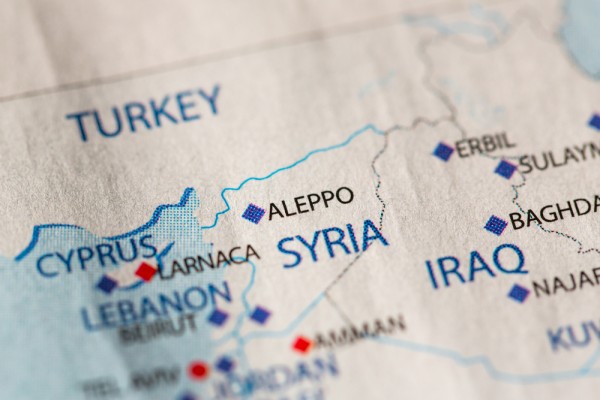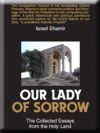
Fakirs playing their flutes to fearsome cobras, a native dentist with his nasty-looking tongs and a jar of extracted teeth, drummers in colourful national garb, stalls serving spicy food in bright tagines: the main square of Marrakech, the old capital of Maghreb (that is North Africa west of Egypt and North of Sahara, presently and mainly Morocco, Algeria and Tunisia), is exotic, vibrant and gaudy, justifying expectations of a new Paul Bowles. The plaza is surrounded by a web of narrow lanes, similar to the old city of Seville.
Indeed Maghreb and Spain are united by much of its culture. The Bahia Palace of Marrakech is a modest brother to the magnificent Alcázar of Seville and its minarets are modelled on La Giralda. The Moors, or Maghrebis created the great pearls of Spanish civilisation in Granada, Cordova and Seville, but they could not repeat this feat after the expulsion on their own soil.
Marrakech is a hub of old roads connecting through Sahara to Timbuktu and through Gibraltar Straits to Andalucía, to the Atlantic seaboard with its surfers and to the rest of North Africa via Fes and Tunis. The first road is the most romantic one. The best record of this trans-Saharan navigation is the glorious yet underappreciated film of recently demised Bernardo Bertolucci, The Sheltering Sky. If with years passing by, cinema will follow manuscript illumination and vanish from public conscience, this film will remain, with a very few others, as a memory of this once great art. These square mansions, called Kasbah, with their windowless walls and crenelated roofs, stand along the routes now frequented by lorries instead of camels. Sub-Saharan Africa is very far away – 52 days of camel ride separate it from Maghreb. The best thing in Sahara is the starry sky, unbelievable sky – you never saw anything similar, and this is a good reason to travel to Sahara.
The second road, to Gibraltar and beyond, is more important, for Maghreb is well-connected with Europe. The Mediterranean connects Maghreb to Europe, while Sahara separates it from the rest of Africa. Arnold Toynbee considered Maghreb an outlying part of Europe, like Balkans or Scandinavia. If Europe is the Roman Empire, Maghreb, or Africa and Mauretania, were the wealthiest Roman provinces of long standing, when Germany and Scandinavia were still terra incognita.
This proximity is counterbalanced by faith difference. The Moors accepted Christ among the first, and they gave to the Church its Fathers Tertullian and Augustine; but they switched to Islam long time ago, and became not only neighbours but competitors and adversaries to Europe.
They, the Moors, are the reason of this article. They, and the Europeans, invade and invite each other in turns, like waves that ingress and regress upon the shore. It’s not that one side was always prevailing. The Moors colonised Europe and Europeans colonised Maghreb. They also expelled their colonisers even centuries later. Nothing is final.
Maghrebis, or the Moors are not particularly meek. Not at all. Quite dynamic and vigorous folk with enough testosterone. Do not push Moors, or you’ll regret it. You may regret it anyway, as Desdemona did. The Moors are not black. They look like Southern Europeans, some are lighter and some are darker, like Greeks, Italians or Spaniards. A lot of them live now in Europe, chiefly in France and Netherlands, so many that one can speak of a new Moorish conquest.
Their mutual invasions began 2000 years ago. In the confrontation of Carthage, the main North African city, and Rome, the first European capital, the Romans won; they conquered and colonised the Moors and brought them into the Empire; they embraced Christ and entered the Latin Church. Together with Spain, the Maghreb was overrun by the Vandals, a North European folk but returned to (East) Roman rule, under Justinian.
The European dominance ended with arrival of the Arabs, who intermingled with the natives, brought them Islam, mobilised them and crossed into Europe. The Moors took over Spain (this is called La Conquista, the Conquest) and there peaked their civilisation. But nothing is forever.
Hundreds of years later the Spaniards defeated the Moors and pushed them back to North Africa. Even the Christian Moors were expelled, though a bit later. (This was called Reconquista, Taking back).
However, the idea of separation didn’t work out. The Moors didn’t take the defeat lying down. They began raiding Europe’s shores and attacking European shipping.
Now they were called ‘Barbary corsairs’, formidable adversaries of the Europeans. They raided Europe as far as Iceland, and depopulated villages and towns of Southern France and Spain. They mined Europe for slaves.
That was the big difference between Europe and the Muslim world: slavery. It was marginal in Europe (after the crash of Roman Empire) and popular in the Dar al-Islam. The Muslims used slaves, they needed slaves, and they apparently preferred European Christian slaves. While Spain was Muslim, the Vikings raided Eastern Europe, captured local folk and sold them to Jews, while the Jews traded this valuable commodity in Cordoba. Later, East Europeans, ancestors of modern Russians, were raided and captured by Crimean Tatars to be transported to Istanbul. But the demand was big, the profit huge, and the Moors began raiding West European shores and capture boats in the Mediterranean.
These corsairs were quite different from the Caribbean pirates. Jack the Sparrow people were Europeans, and they robbed the boats. They didn’t care for crews and passengers of the captured vessels: they could be thrown overboard or given a dinghy or landed on a shore; rarely kept for ransom. Barbary corsairs were going mainly for crews and passengers. They treated the Europeans like the Europeans treated Sub-Saharan Black Africans – captured, enslaved and sold on the market. Yes, Virginia, whites also were slaves. Every European could become a slave in Dar al-Islam, and millions of East and West Europeans, French, Spanish, British and Russians were sold and bought on Istanbul markets.
Europeans were forced to take over Maghreb, (likewise Russians were forced to conquer Crimea) to stop slavers’ raids. That was the beginning of European colonisation of Maghreb.
The Moors stopped to come to Europe, but then, the Europeans have moved to Maghreb. They had built towns and cities, established industries, and re-joined Maghreb to Europe. They settled in Maghreb, hopefully forever.
But it didn’t work: surprisingly (?), the Moors didn’t like it. They rose in rebellion, got independent, and expelled all the European colonists in their millions back to Europe. Half a million from Morocco, one and a half million from Algeria, two hundred thousand from a smaller Tunisia had to leave their homes and go to the country they probably never visited.
Did they parted their ways? Not really! In a short time, the Moors went to Europe by hundreds of thousands, and settled there. Now France and Netherlands have more Moors – between three and four million – than Spain had in the zenith of Moorish power.
It didn’t help the expelled Europeans. The houses of European colonists in Algeria, Morocco and Tunisia weren’t returned to their owners. They are still there, as a memorial for the days when Europeans lived in North Africa.
General de Gaulle granted Algeria independence, he said, to stop mass migration of Moors to France. It didn’t work: Algeria became independent, but migration didn’t stop.
I spoke to my Moroccan friend Hamid about moving to Europe. He doesn’t want to, though many of his friends, relatives and acquaintances did the move. He says it is more comfortable to live in his native Maghreb. In order to live in France on the same level, he’d have to work much more. Accommodation in France is quite expensive. At home, in Morocco, he lives well as proper middle class, and still works normally without overtime. He is wise – but many other Moors move to Europe.
Within the Old City of Marrakech, I found a synagogue. A sprawling complex with courtyard, it is located a few hundred yards from the royal palace – as Jewish centres usually are everywhere. Despite squeaks of ‘persecution’, my ancestors were highly privileged even in Morocco and Spain. They were instrumental in the Europe-Maghreb population flow for centuries.
Jews helped the Moors to conquer Spain in the first place, continuing the tradition of switching sides in the real time. (In Palestine Jews supported the Persian invasion, and afterwards, the Arab one.) Jews played an important role in Moorish Spain, and had to leave together with the Moors.
In Maghreb they switched back to the European side. A Jewish minister of justice in 19th century France, Adolphe Crémieux gave Algerian Jews (as opposed to other Algerians) French citizenship. It was a shrewd act: influential local Jews supported France against the natives.
In Tunisia, the Jews were extremely powerful for centuries. In 1819, the United States consul in Tunis, Mordecai Manuel Noah, wrote of them: “The Jews are the leading men; they are in Barbary the principal mechanics, they are at the head of the custom-house, they farm the revenues; they control the mint, they are the bey’s treasurers, secretaries, and interpreters. These people, then, whatever may be said of their oppression, possess a very controlling influence, and their opposition is to be dreaded.”
When the French came, these ‘leading men’ switched sides and supported the French colonial administration. Though even then they had no sympathy for the French settlers, and their expulsion had been explained as a perfectly justifiable act by Albert Memmi, the prominent Tunisian Jewish writer. For Memmi, they were greed-obsessed carpet-baggers: “You go to a colony because jobs are guaranteed, wages high, careers more rapid and business more profitable. The young graduate is offered a position, the public servant a higher rank, the businessman substantially lower taxes, the industrialist raw materials and labor at attractive prices. He is often heard dreaming aloud: a few more years and he will take leave of this profitable purgatory and will buy a house in his own country.” He didn’t notice that the same attitude could be ascribed to the Tunisian Jews and Muslims that moved to France. The Jews would go to Israel or to Quebec whenever the time is right; the Muslims may return “to their own country”, but it probably won’t happen.
The Jews of Europe are fond of immigration from Maghreb. At least they promote it. Fine, but why did the Europeans accept the Maghrebi immigrants? After being expelled from these countries, one could expect the Europeans to say “You wanted to get rid of us, now stay away and enjoy your freedom from Europeans”. But European countries were eager for immigrants, and it was not caused mainly by need for working hands, for some European countries managed fine without them.
After the long world war Europe had been occupied; the West by the US, the East by the USSR. Their policies were very different: the Western rulers had little trust in their nations, and they began to bring immigrants from North Africa and Turkey, in the same time preaching diversity.
The pro-Soviet leaders didn’t want any immigrants, and they carried out soft nationalist policies. Experience of East Germany, Czech Republic and Hungary proved the European countries do not need immigrants for their economy.
These countries entered homeostasis, a rather stable balance with little development, almost stagnation accompanied by steady improvement of workers’ life. Homeostasis is the best for ordinary European workers. This was achieved in socialist states, including soft-socialist Scandinavian ones.
The Europeans could live quiet peaceful life, slowly and gradually improving their lot and going down in numbers. There is nothing wrong with diminishing population: it could be fine for ordinary people. The world is not endless, the resources are limited, housing construction takes time. It could be good for Europe to slowly decrease its population to the level circa 1800. It would be a new Golden Age, many green lawns, green forests, modest but pleasant life for everybody.
But it would be bad for sales. Jewish love of immigration is connected to their preference of sales upon production: while production could be automated, robots introduced, productivity increased, the sales are done by humans. You need more people willing to buy, take credits and rent your housing, to work hard to advance, and to push others to take credits and compete. Without immigration, the Jews would lose their raison d’être.
Would there be immigration without Jews? Yes, for there are enough non-Jews who imitate Jews. Even if not all of them succeed, there are many of them and they are willing to go to considerable lengths. The way to stop immigration is to stop expansion and growth, to kill capitalism as we know it.
Production and market are perfectly possible in homeostasis; interest, shares, currency trading are not.
The GJ, the French Yellow Vests, proposed to make things last long. This is a good and radical step, instead of rubbishing the world with models that came two years ago and are already out-dated or broken. We had these things: I remember a fridge in good shape after 20 years of use, and a VW car running well after 30 years of service. If we want, we could make things that will serve practically forever, repairable and serviceable.
Japan is a good example of developments: our colleague Linh Dinh visited the land of Yamato and had been upset by what he saw, that is by aging population and loveless youth. I am also a regular visitor in Japan; yes, Japan was perhaps more fun many years ago, but it is doing all right. It does not grow much, the American and European traders do not become rich overnight speculating with Japanese goods. Shares do not rise, true. But for ordinary Japanese this is good. They could have even less progress and still be satisfied.
Japanese friends often told me (when I’d regret slow growth of Japanese economy): we do not want more. The years of rapid growth were the years of our misery. The years of stagnation are just fine for us. If the US were to forget about us completely instead of pushing to conform to their ideas of growth and diversity, we’d be even more happy.
Our world needs less and less working hands. What stops us from enjoying this situation? The European population does not grow, it gently decreases. Immigrants from North Africa and elsewhere do grow, but let them grow in their ancestral lands.
There is no reason to worry about the growing African population. This is after all, an African affair. The Sahara is too big to cross; the airlines can be stopped from carrying human traffic. Yes, many Africans would prefer to live in France or Holland, and surely some Africans will do it. But no massive population waves please, unless led by Theodoric or Genghis Khan.
In my childhood, there was a popular game called Musical Chairs. While music played, one could choose a chair and sit on it the moment music stops. It’s enough of this game. Let people sit where they sat. This temptation to grow endlessly may and should be defeated.
It is enough to defeat the greed, the spirit of getting more and more; and then we shall softly land on a green meadow.
Israel Shamir can be reached at adam@israelshamir.net
This article was first published at The Unz Review.


















